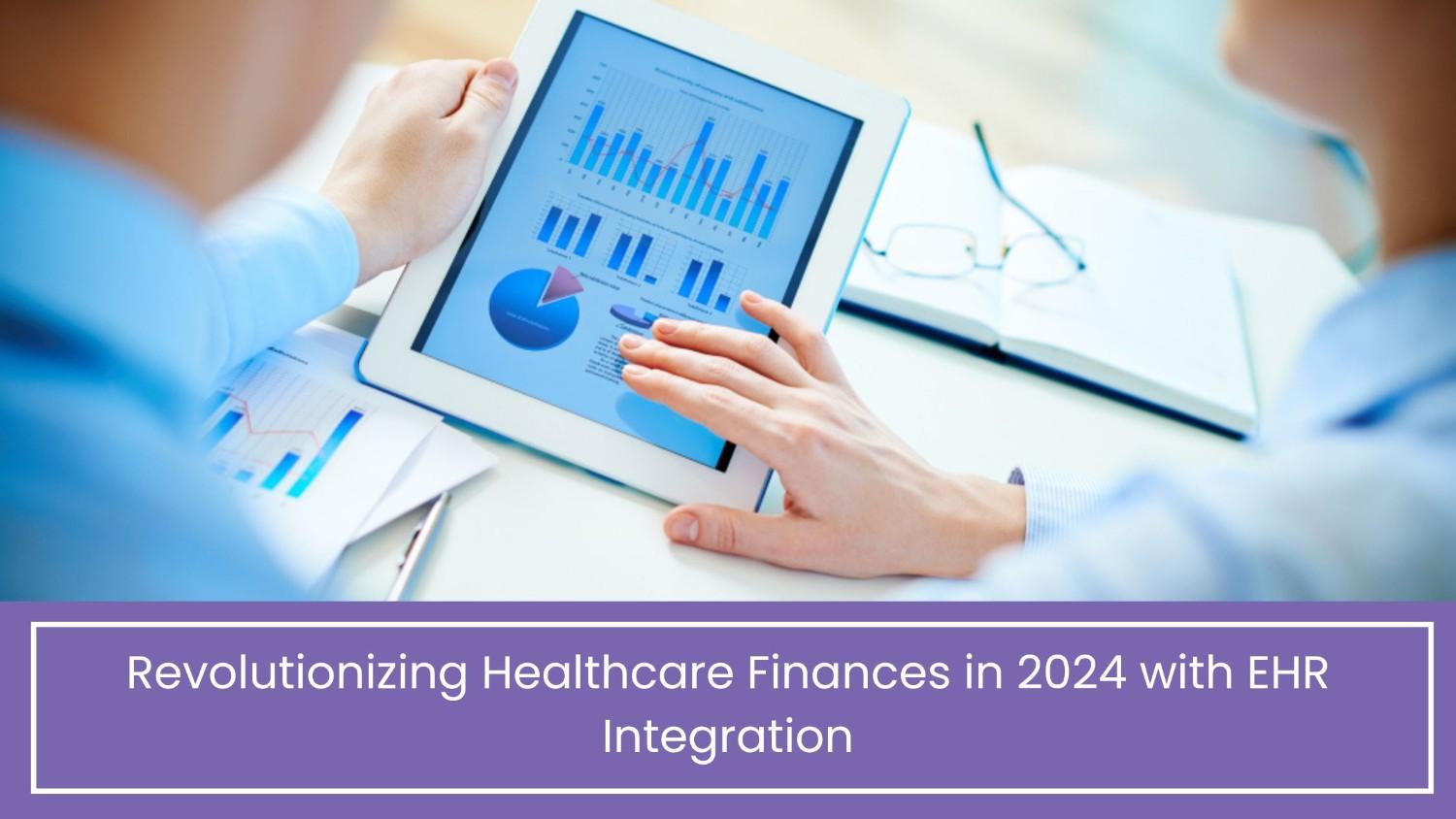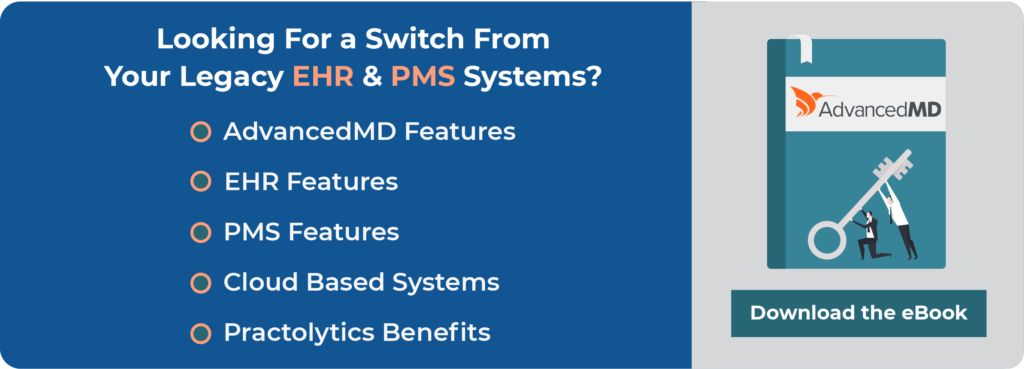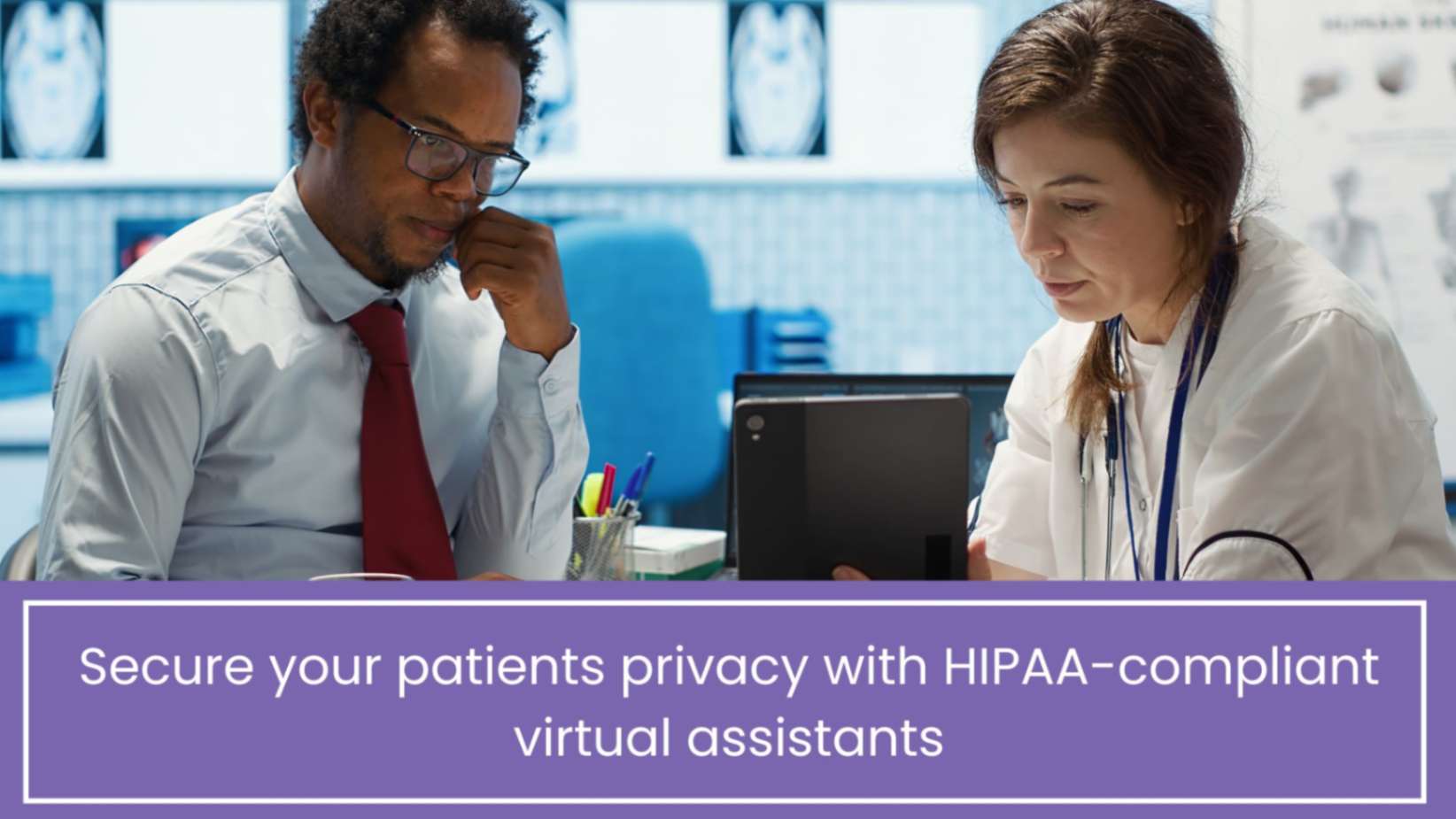Revolutionizing Healthcare Finances in 2024 with EHR Integration
In the dynamic landscape of healthcare, 2024 marks a transformative era for practices and healthcare professionals. Revolutionizing healthcare finances in 2024 with EHR integration, the synergy between advanced Healthcare Revenue Cycle Management (RCM) and cutting-edge Electronic Health Records (EHRs) is set to enhance efficiency, accuracy, and financial sustainability. As the influence of RCM continues to grow, its integration with leading EHR platforms like AdvancedMD is proving to be a game-changer. This blog explores the profound impact of RCM, its essential services in the healthcare sector, and the critical role of EHR integration in optimizing revenue and streamlining operations for healthcare professionals.
Table of Contents
Understanding Healthcare Revenue Cycle Management and Services
Healthcare Revenue Cycle Management services are a critical facet of healthcare administration, covering all financial aspects of a patient’s journey within the healthcare system. This process entails managing patient registration, insurance verification, coding and billing, claims processing, and payment collection. Its primary goal is to ensure healthcare providers receive accurate and timely reimbursement for their services, thereby sustaining their financial viability.
Comprehensive RCM services, offered by specialized companies, aim to streamline, and optimize these financial processes. These services contribute to improving revenue, reducing denials, and enhancing the overall financial health of healthcare facilities. Leveraging technology, compliance expertise, and industry knowledge, RCM services navigate the intricate healthcare reimbursement landscape efficiently. RCM plays a pivotal role in upholding the financial health of healthcare organizations, ultimately leading to improved patient care and overall sustainability.
Changing Landscape of Healthcare Revenue Cycle Management
The evolution of Healthcare Revenue Cycle Management (RCM) extends beyond billing and coding; it has become a holistic strategy involving patient engagement, financial management, and compliance. In 2024, this evolution persists, bringing substantial changes to how practices handle their revenue.
A pivotal aspect of this transformation is the integration of technology. Practices and healthcare facilities, in their pursuit of streamlined processes and enhanced financial outcomes, are increasingly adopting advanced RCM solutions like AdvancedMD. These platforms offer a comprehensive toolkit, aiding practices in optimizing revenue collection, alleviating administrative burdens, and enhancing the overall patient experience.
AdvancedMD: Digital Backbone of Healthcare RCM
AdvancedMD stands as a cutting-edge solution, providing healthcare providers with a seamlessly integrated Electronic Health Records (EHRs), and practice management software system. In 2024, medical practitioners can harness AdvancedMD’s capabilities to significantly enhance their Healthcare Revenue Cycle Management (RCM) functions.
- Seamless Integration: AdvancedMD seamlessly integrates EHR, practice management, and RCM into a unified platform. This integration aligns clinical operations with financial processes, facilitating efficient data exchange and reducing errors.
- Real-time Data Insights: Healthcare providers using AdvancedMD can access real-time financial reports, patient demographics, and payment trends. These insights empower informed decision-making, enabling practices to adapt and thrive in the ever-evolving healthcare landscape.
- Adherence to Healthcare Regulations: In 2024, strict adherence to healthcare laws and regulations remains crucial. AdvancedMD consistently updates its systems to ensure billing procedures and financial operations align with the latest regulations, mitigating the potential for legal challenges.
- Streamlined Claims Handling: Timely and accurate claims processing is vital for healthcare providers’ revenue maintenance. AdvancedMD streamlines the claims handling process, ensuring precision, punctuality, and adherence to regulations, ultimately leading to expedited reimbursements.
Power of EHRs in Healthcare RCM
In 2024, Electronic Health Records (EHRs) have undergone a significant transformation, emerging as vital assets reshaping the healthcare sector. They have become essential tools for healthcare professionals and organizations, playing a pivotal role in empowering Healthcare Revenue Cycle Management (RCM). Here’s how EHRs, including systems like AdvancedMD, contribute to this empowerment:
- Enhanced Data Accuracy: EHRs reduce the risk of errors and inaccuracies in patient records, mitigating billing discrepancies. Accurate data is crucial for a streamlined RCM process.
- Improved Patient Engagement: EHRs enable patients to access their health records, review bills, and communicate with healthcare providers. This level of engagement fosters trust and enhances patient satisfaction, a key element of successful RCM.
- Efficient Documentation: Healthcare professionals can swiftly and accurately document patient encounters, simplifying the submission of claims and ensuring that services provided are correctly translated into billable charges.
- Interoperability: EHRs facilitate interoperability between different healthcare systems, ensuring seamless data sharing between healthcare providers, payers, and patients. This interoperability enhances the overall efficiency of the healthcare ecosystem.
Key Aspects of Revenue Cycle Management and Associated Services
The revenue cycle management (RCM) process is integral to the healthcare sector, consisting of core elements:
- Patient Access: Serving as the initial gateway, this involves tasks like scheduling appointments, registering for services, verifying insurance, and providing necessary documentation. It lays the foundation for subsequent steps.
- Billing and Charge Capture: After a patient receives healthcare services, these services are translated into billable charges. These charges are aggregated and processed into an invoice or claim, subsequently submitted to the patient or their insurance provider.
- Submission of Claims and Follow-up: The submitted invoice or claim is sent to the insurance company for payment. This stage may involve communication with the insurance company, addressing inquiries or concerns. The RCM team ensures compliance with regulations and resubmits claims if necessary.
- Collection of Payments: While the final step involves ensuring prompt payment, addressing denied claims, and establishing payment arrangements for patients. This step is crucial for the overall success of the RCM process.
Importance of Healthcare RCM in 2024
In 2024, Healthcare Revenue Cycle Management (RCM) has evolved into a comprehensive approach, offering significant benefits in the dynamic healthcare environment:
- Increased Financial Stability: RCM serves as the financial pillar for healthcare practices, ensuring a steady revenue flow amid shifting reimbursement models and varying patient volumes. It prevents revenue leakage and enhances the billing process for sustained financial stability.
- Reduced Administrative Burden: RCM streamlines billing processes, minimizes errors, and optimizes administrative tasks, alleviating the daunting administrative burden on medical professionals. This automation allows healthcare providers to focus on delivering quality care.
- Improved Patient Experience: Optimized RCM processes empower patients to handle their financial responsibilities with ease. Transparent billing, understanding service costs, and convenient payment options enhance patient satisfaction, trust, and the overall healthcare provider’s reputation.
- Data-Informed Decision-Making: RCM’s strength lies in producing extensive financial reports, providing insights into revenue streams, patient demographics, and payment patterns. This data enables healthcare organizations to make well-informed decisions regarding resource allocation, growth tactics, and service improvement.
- Compliance with Regulatory Standards: RCM integrates real-time updates and compliance verification to ensure billing procedures align with the latest regulations. This minimizes legal issues, including fines and disputes, helping healthcare providers maintain industry standing.
- Streamlined Claims Processing: RCM is essential for efficient claim processing in 2024, ensuring accuracy, punctuality, and regulatory compliance during submissions and follow-up for faster reimbursements.
- Minimizing Unpaid Debts: RCM and related services offer effective solutions, including automated reminders and transparent invoicing, reducing the likelihood of unpaid bills. This not only addresses financial considerations but also upholds trust and credibility with patients.
In this ever-evolving healthcare landscape, RCM emerges as a vital strategic asset, contributing to financial resilience, operational efficiency, and enhanced patient satisfaction.
Entering 2024, the landscape of healthcare Revenue Cycle Management (RCM) has evolved into a comprehensive and dynamic approach, profoundly influencing both financial success and healthcare delivery. The incorporation of advanced RCM solutions like AdvancedMD and cutting-edge Electronic Health Records (EHRs) marks an era of heightened financial stability, diminished administrative burden, enhanced patient experiences, data-informed decision-making, compliance with regulatory standards, streamlined claims processing, and minimized unpaid debts for healthcare practices.
Beyond being a crucial tool for navigating the ever-changing healthcare environment, RCM enables healthcare professionals to adapt and thrive. The ability to leverage data for decision-making and adhere to evolving healthcare regulations ensures not only financial viability but also a robust reputation within the industry. For many healthcare practices, the consideration of outsourcing RCM is a strategic option.
Outsourcing RCM to specialized companies offers expertise, efficiency, and cost-effectiveness, enabling healthcare providers to concentrate on delivering quality care while entrusting intricate financial processes to experienced professionals. This strategic move further amplifies the financial success and sustainability of healthcare organizations in 2024 and beyond.
Looking to enhance your Revenue Cycle Management (RCM)? Look no further than Practolytics. We bring you the power of EHRs and AdvancedMD to optimize your financial processes.
At Practolytics, our expert team specializes in RCM, ensuring your revenue stays on track. We integrate cutting-edge EHRs like AdvancedMD to streamline your financial operations, minimize errors, and maximize revenue. With us, expect a smooth and efficient RCM process, allowing you to focus on what you do best – caring for your patients.
Choose Practolytics for a seamless and profitable RCM journey.
ALSO READ – Wound Care Billing: Outsourcing for Optimal Efficiency and Profitability
Talk to Medical Billing Expert Today — Get a Free Demo Now!






